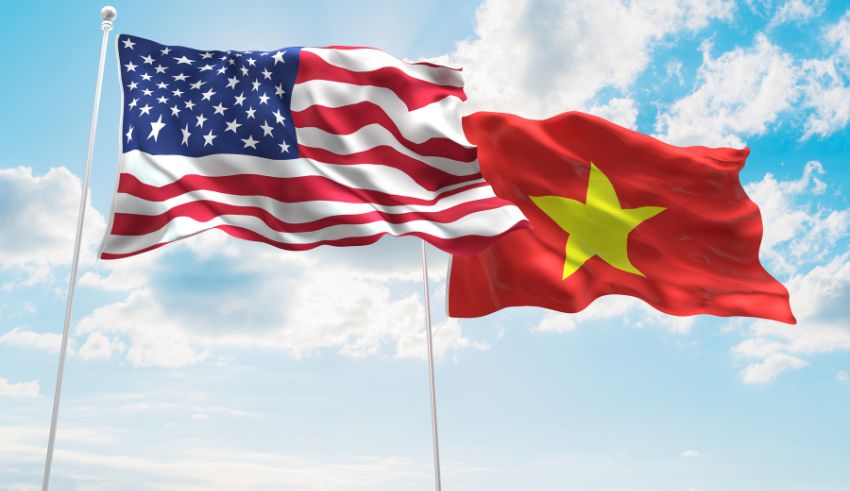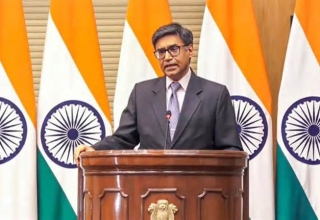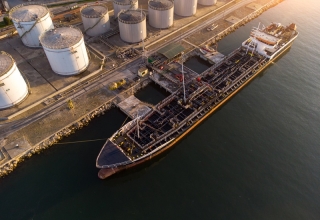
As Vietnam gets ready to install ten new underwater cables by 2030, the United States is pushing Vietnam to rethink interacting with Chinese companies, especially HMN Technologies. This initiative coincides with mounting worries about Chinese companies’ participation in worldwide infrastructure projects, which the United States considers to pose a possible threat to its geopolitical and technological interests. Expanding internet connections to satisfy Vietnam’s fast rising digital needs is a primary focus for the government as five of its main subsea cables currently experience regular outages.
Since early this year, American officials and businesses have been closely interacting with their Vietnamese counterparts, attending at least six meetings to go over Vietnam’s cable plan. These conferences have included industry experts and business leaders in addition to U.S. government officials trying to guide Vietnam away from Chinese suppliers. Emphasizing the great stakes involved, one participant in the sessions reported the lobbying activities as “very hard.” Given the vital function undersea cables play in world communications, the urgency stems from concerns of espionage and possible sabotage.
Sources involved with the conversations said that U.S. officials have sent intelligence implying possible damage to Vietnam’s current cables. Though the Vietnamese government has not discovered conclusive proof to support this, suspicions of sabotage have heightened issues regarding the security of their communications system. Although Reuters spoke with twelve people—including diplomats and Vietnamese officials—all of them asked to be anonymous because the topics of the conversations are delicate.
Fighting for Influence: American against Chinese in Vietnam
Long rivals for dominance in Vietnam, a strategically important nation with a growing digital infrastructure are the United States and China. Both President Joe Biden and Chinese President Xi Jinping paid visits to Vietnam in 2023 to underline the significance both countries attach to deepening relations with Hanoi. Companies from both nations have also made significant investments in Vietnam, hence strengthening ties between their economies.
Washington, however, remains worried about the possibility for spying even if China has freely discussed improving digital “interconnections” with Vietnam. Previously successful in lobbying to ban HMN Tech from another worldwide cable project, U.S. officials, worried of Beijing’s expanding influence, Vietnam has become the focal point of a larger U.S.-China struggle due to this continuous competitiveness in the tech and telecom sectors.
American attempts to influence Vietnam’s cable contractor decision center on convincing the nation that HMN Tech is not a wise choice. Less well-known consultant APTelecom has been essential in these negotiations, serving as a middleman between American officials and the Vietnamese government. APTelecom has underlined explicitly in these conversations that selecting less experienced contractors like HMN Tech could discourage future U.S. investments in Vietnam.
Issues Regarding HMN Technologies
Washington views HMN Tech as a Huawei associate, the Chinese tech behemoth subject to heavy U.S. sanctions on national security issues. Although Huawei has refuted these claims, the United States sees any relationship with the corporation as a possible security hazard. Founded in 2008, HMN Tech is somewhat new in comparison to other big companies in the sector including America’s SubCom, Japan’s NEC, and France’s Alcatel Submarine Networks.
Notwithstanding these reservations, Vietnamese officials have so far shown openness in working with Chinese businesses on the underwater connections. Given Beijing’s offerings for such initiatives are generally far less expensive, Vietnam finds them appealing as it starts a major infrastructure development. Still, the U.S. is certain that the long-term security concerns exceed the temporary financial gains.
U.S. Intelligence in the Sabotage Discussion
The argument on whether sabotage caused Vietnam’s subsea cable outages adds still another level of intricacy to the matter. During two of the sessions this year, U.S. officials showed satellite pictures and other evidence implying the outages might have been purposefully generated. Although the Vietnamese authorities came to the conclusion that there was no clear evidence, the mere prospect of sabotage causes great concern.
The government of Vietnam is aiming for a notable increase of its internet infrastructure since the undersea cables it now has suffered expensive disruptions over the previous year. Although official estimates for the new cables have not been made public, experts have pointed out that the initiative marks one of the most ambitious projects by any developing nation.
Worldwide Cable Laying Industry Players
Apart from HMN Tech, some other multinational companies are vying for Vietnam’s cable contracts. These include decades of expertise laying long-distance undersea cables from SubCom, NEC, and Alcatel Submarine Networks. By comparison, HMN Tech has concentrated largely on shorter cable projects. The U.S.’s case against hiring HMN Tech for Vietnam’s ambitious undersea expansion centers mostly on this disparity in experience.
Originally intending to work with HMN IT on a new cable, one of Vietnam’s top private IT businesses, FPT, has subsequently shelved their intentions. Concurrently, state-owned telecom company Viettel has teamed with Singtel of Singapore to create a new cable infrastructure avoiding the South China Sea, a territory under territorial conflict with China.
The Cable-Laying Projects of Vietnam: Future
The competition for these contracts is still intense as Vietnam advances with its intentions to establish ten new undersea cables by 2030. China has made competitive bids, while the United States keeps pushing back, cautioning of the dangers connected with Chinese companies’ engagement. Though time will tell which side wins, right now the fight over Vietnam’s cable contracts emphasizes the larger geopolitical conflict between the United States and China.
Vietnam’s stakes are really high. Apart from supporting its expanding economy with dependable and safe internet connections, the nation also has to balance two world superpowers fighting for influence in the area. The choice of corporations to construct Vietnam’s new cables could have significant effects on its political and economic alignment going forward.
























